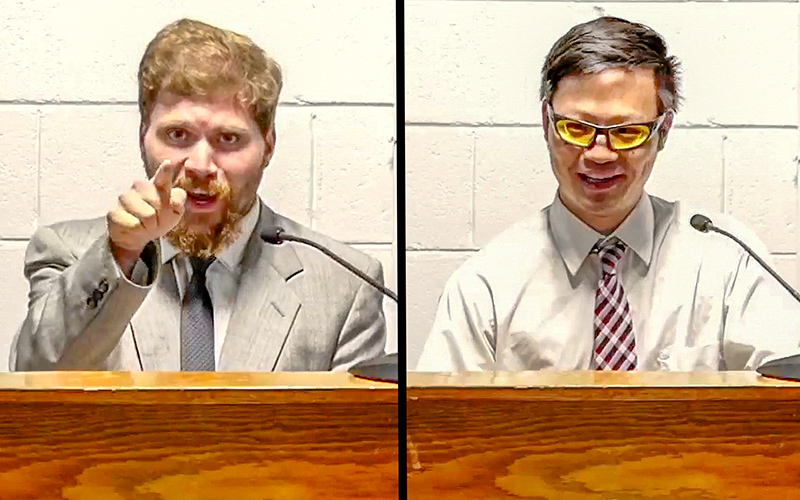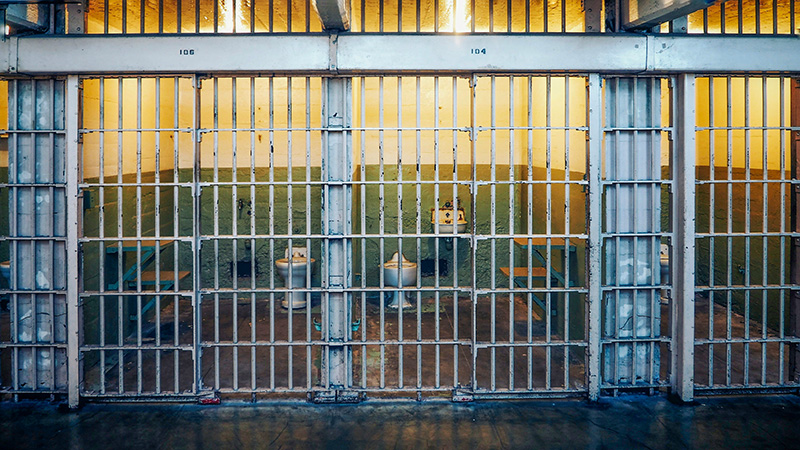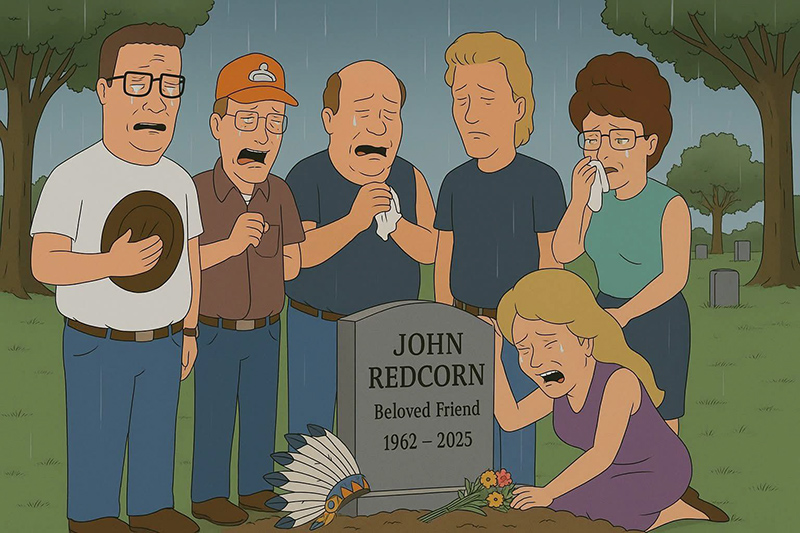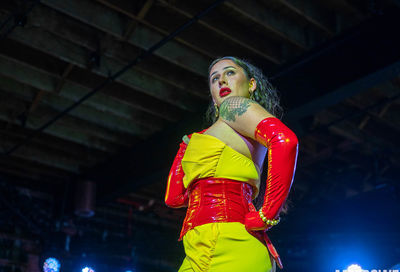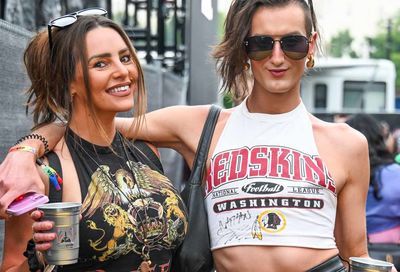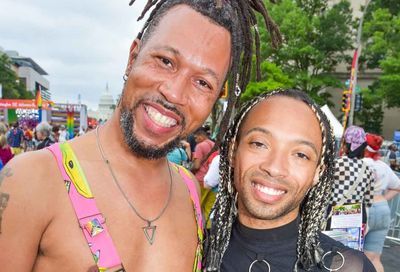Gentle Ben
Ben Cohen taps rugby-warrior stardom to tackle homophobia
It’s likely the fantasy of many gay men. In a New York City hotel room, Ben Cohen, 32, is fresh from the shower. Sorry, gents, he is not in the buff.
”Oooh, look at you – ‘StandUp’ T-shirt.”
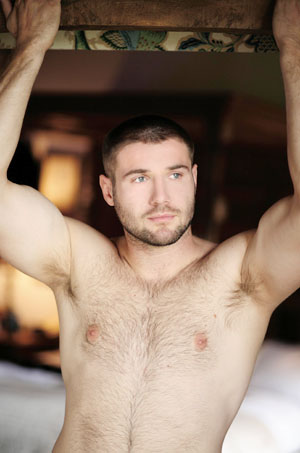
Cohen
That’s Jill Tipping, Cohen’s right-hand woman, easily heard over the phone with her strong English accent giving her sassy assessment of Cohen’s choice of attire as he sports the signature T-shirt of his new Ben Cohen StandUp Foundation. The straight rugby superstar recently retired from the sport to turn his attention to battling homophobia and bullying. He says challenging bullies is a trait that runs in the Cohen family. It’s a trait that essentially cost his father his life in 2000, dying from wounds sustained as he tried to break up a fight at a nightclub managed at the time by Cohen’s elder brother, Justin, according to Britain’s The Independent newspaper.
And while it may have been curious when the young celebrity athlete embraced his gay fans, his foundation takes things to a whole new level.
”We’re thrilled to be working with him,” says Michael Cole-Schwartz, spokesperson for the Human Rights Campaign, which has been working with Cohen as he brings his Acceptance Tour to the U.S. ”Ben Cohen is emblematic of a turning tide in our culture that is starting to happen more and more in sports. Straight people are standing up for the LGBT community in ways we just haven’t seen before.”
In D.C., that sort of standing up will have Cohen at an HRC-sponsored ”meet and greet” at 901, the new restaurant venue of the city’s gay entrepreneur extraordinaire, David Von Storch. Aside from glad-handing there on May 25, Cohen will also be training some lucky locals at Von Storch’s Vida Fitness. That’s one of the items on auction Tuesday, May 24, as Cohen comes to Town.
While the 901 event is invitation-only, the event at Town is open to the public, with all proceeds of a $3 cover going to support Cohen’s foundation. Along with GenOut – the youth outreach program of the Gay Men’s Chorus of Washington, D.C. – and the Washington Renegades rugby club, the Town event is being put together by the DC Bëar Crüe.
”This is extremely important,” says Charger Stone of Cohen’s push against bullying. Stone, the man behind the Crüe, knows what he’s talking about. He helped coordinate his own similar project, ”Bears Against Bullying.” And though his slender frame would hardly qualify Stone as a bear himself, it’s a community he loves and one he thinks really understands Cohen’s effort.
”They’re not the ‘pretty’ crowd,” says Stone, explaining that the generally heavier bears may be likelier to have faced bullying themselves at some point in their lives. ”I think they’re frickin’ hot, but not everybody feels the same.”
With those standards, however, the strapping rugby player might not have the heft to turn Stone’s head. He grants what is hard to miss, though, that Cohen is definitely a handsome man. He does add one caveat: ”But I’m more of a Manchester United fan. I hope he doesn’t hold that against me.”
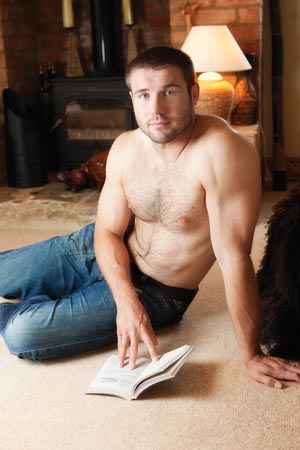
Ned Kieloch, president of the Washington Renegades, has no such reservations.
”I think he’s a terrific guy. I got to meet him in New York in January to talk about his coming by D.C. He’s just a delightful man. It makes me really proud to be a rugby player.”
And although Cohen’s U.S. tour, officially kicking off May 19 in Atlanta, will have him making major appearances in New York and Seattle as well – this on top of last week’s visits to New York and San Francisco, where he attended the Gay & Lesbian Alliance Against Defamation (GLAAD) Awards – Kieloch seems most excited about a relatively quiet stop Cohen is scheduled to make: Richard Montgomery High School in Rockville, where Cohen will meet with members of the school’s Gay/Straight Alliance. It’s a stop Kieloch and the GMCW helped secure, and one well in line with the tour’s benefactors, which include the Gay, Lesbian & Straight Education Network; The Trevor Project; and Campus Pride.
”Will it change everything overnight?” Kieloch posits. ”No. But it might be nice for high school students to see a professional athlete is on their side.
”History only goes in one direction. I think we’re on the right path right now. If Ben Cohen can help, that’s great. If we can help, we’re glad to do our part.”
METRO WEEKLY: Welcome to America. I hear you’ve just done The Michelangelo Signorile Show on Sirius. What else have you gotten up to so far?
BEN COHEN: I’ve had a bit of media training with GLAAD, which was really good. Did the interview on Sirius. Today we’re doing New York Times, then off to the airport for San Francisco.
MW: For the GLAAD awards?
COHEN: I’m really looking forward to it.
MW: This foundation you’re starting sounds pretty amazing. Do you think you might take it beyond the U.K. or the states? Places like Uganda come to mind, where you might be able to make more headway than gay activists.
COHEN: Wherever it takes us, really. We’d like to see ourselves as worldwide. I think it would be suicidal to pigeonhole ourselves to the states and Great Britain, because the problems are everywhere. But some countries are more accommodating. Comparing England to the states – gay people, homophobia in sports – things like that are a lot different to how you see it here in the states. And a lot of my following on Facebook, Twitter, a majority are from the states.
MW: But maybe a tour to Iran?
COHEN: Yeah. [Laughs.] Actually, a friend of mine’s just gone to Afghanistan. He’s a rugby player in England and he’s gone out there to do some stuff. He picked up body armor and all of that.
So, anywhere. Seriously, anywhere. It’s all about making a difference. Being a straight athlete is really powerful. We want to use that – with the support of Facebook and Twitter, we have – to show that we have a little bit of power. We want to grow that following and we want to use that as a real power tool, if you know what I mean.
We read a lot of people’s problems, what people go through. They get outed, some by family or friends, and they don’t have anyone to turn to. They don’t have a support mechanism, particularly if they turn inwards. That’s where a lot of it breaks down. They don’t have any support at home. They can become so isolated and then start doing the unthinkable – taking their lives.
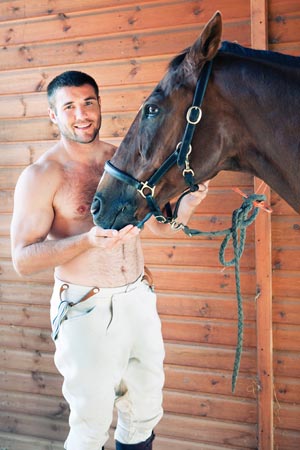
As a husband and a parent – I’ve got twin girls – I bring my kids up knowing rights from wrongs. I’m sure I make some mistakes, but ultimately they can talk to us about anything, anytime. The last thing I want to do is, ”Oh, sex? We’re not talking about that.” Or if you’re getting bullied and you’re not talking to me about it, we’ve got a serious problem. It’s pretty simple for me, really. My dad got brutally killed through being beaten up in 2000. I understand what it is to have a great family unit, a very loving family, ripped apart overnight. I know how people feel, [although] I don’t understand how they feel about coming to terms with having feelings for the same sex, obviously, because I’m a straight man.
But what we’re trying to do is stop bullying on a big scale. If I save one person’s life, then I’m doing a good job. All the feedback we have is that we’ve been helping people, helping them talk to their parents and things like that. We’re doing good and we hope to build that into a massive thing across the states and across the world. But, ultimately, we have to go where we get a lot of support. That’s here and in England, at the moment.
MW: Of all the issues you could’ve gotten behind, why homophobia? Is your motivation for tackling homophobia and bullying primarily that you’re a parent?
COHEN: I first started doing this about six years ago, so it’s not about being a parent. It’s about how having a privileged position and a huge following can change people’s lives, or change someone’s thought process. That was the main part about it. I found out I had a following that had been going on for a couple of years, without really knowing about it. I found out I had a massive following – and it happened to be all men. [Laughs.] And it didn’t bother me, didn’t phase me. It was people emailing me and [my assistant] Jill, telling us what they were going through and, ultimately, I was in a privileged position to make a difference. We found that it came with responsibilities. I could’ve turned away and said, ”Nah, not interested.” But when you start hearing about one thing, two things, thousands of things, you think, ”[Homophobia] is a really common problem.” And I wanted to do something about it.
I’m not after fame, fortune or anything like that. It’s just generally making a difference with the first-ever foundation that is headed by myself, who is a world-champion sportsman with a very successful career, but who also specifically supports LGBT youth. These people could be the decision makers of tomorrow, in 10 years’ time could make a massive difference. It’s horrible to think that someone would want to bully that out of them, drive them to kill themselves, to make them feel isolated or run away. These people probably have bright futures, and it’s sad to see someone get something out of bullying people. It’s been bred into my family that we hate bullies. The Cohen family is exactly that way. That’s the bottom line of it, really. It’s making a difference to youngsters. For me, the people around watching someone getting bullied and picked on, they’re as good as taking part. They’re filming, or taking pictures, or goading – they’re the people we really want to target. That’s wrong. If I saw my kids doing that, on the periphery of that, I’d be pissed off.
MW: When you were young, did you ever stand up to a bully?
COHEN: I’ve never been bullied, but I don’t like people being singled out. Seeing someone bullied or picked on, I’d say, ”C’mon guys, leave it off.” That sort of thing. Yeah, most definitely.
MW: Professional team sports in the U.S. have a notorious reputation for homophobia. What’s the environment like in Europe? Have any teammates criticized you for standing up for the gay community?
COHEN: Not at all. That’s the good thing about rugby, really. Rugby is really inclusive. It’s for all shapes and sizes. Race, color doesn’t matter. Fat, thin, sexual orientation – it doesn’t matter. That’s what rugby’s about, being very inclusive. That’s why we’re doing the rugby tour. These gay/gay-friendly rugby clubs understand that if they want to be accepted, they have to be receptive.
It’s making a massive difference. One, to the quality of rugby; and, two, they’re not being perceived to be different because they’re gay, but actually like a normal person. Well of course they are. It works all ’round. We also want to use [rugby] clubs to extend an olive branch out to the gay community, to people who feel bullied or isolated, because rugby has a great social side to it. It’s like a family. Coming into that community, you don’t necessarily have to play rugby or like rugby. But you’ll be amongst your own people who’ve lived your feelings, who’ve come to terms with being gay in a country that doesn’t really support that issue very well.
MW: What’s the status of your rugby career?
COHEN: I’m retired. It was a good opportunity for me to sort of bow out on my own terms and come and do this full time.
MW: How worse for wear is your body at this point?
COHEN: I’ve had many ”controlled car crashes” through my career, on a daily basis. [Laughs.] It’s been a long career, a good career.
MW: While a lot of people, a lot of fans look up to you, do you have any heroes of your own?
COHEN: Ultimately, my dad. But I don’t, really. I’m not the sort of person to look up to someone and say, ”I want to be that person.” I’ve never really been like that.
Especially, with rugby, I just wanted to be successful, and worked extremely hard to be successful. I admire some people, but don’t necessarily really look up to them as great sportsmen or in general. I admire their skill and stuff. I never really look at that as sort of a hero status.
I do find it a little bit weird that people see me as an icon. I don’t really see myself as an icon at all. But that’s just one of those things.
MW: Because plenty of homophobia is based on religion, I’m wondering if you have any religious views – also because you’re touring the U.S., which is quite a bit more religious than Europe. I’ve read that while ”Cohen” might seem a Jewish name, your family hasn’t been observant for few generations.
COHEN: No, I’m not really a religious guy. I’ve got a Jewish name, but that blood ceased to flow a couple generations ago. I’m not religious. I have my opinions of religion, obviously, but I’m not a religious person. I won’t be turning to any religion.
MW: Opinions? Strong opinions?
COHEN: No, no. Not that I want to get into it, but everyone is entitled to their religious views. I’m skeptical of life after death and believing in ghosts and all that. I’m not a person who goes to church. I do with my girls sometimes, around Christmas and things like that.
MW: Will your family be joining you at some point on your tour?
COHEN: My wife’s here next week. I’m missing my kids and my wife very much. It’s going to be a long month. I miss them very much.
MW: Maybe you can find some time while you’re here to take the family to Disney World.
COHEN: Maybe. [Laughs.] The twins are very hyperactive. That may be a step too far for 3 and a half.
MW: Do either of your daughters look like they might be fit for rugby in the future?
COHEN: I’m not a pushy parent. Whatever they want to do – as long as it’s in the letter of the law. If they want to take up sport, we’ve got horses at home. We have seven horses at home, though only one that’s ours. So I imagine it’s the horsey thing. I’m really looking forward to getting into the equestrian – but it’s very expensive. [Laughs.] [With twins] it’s double of everything at the same time. It’s not like you can buy one thing and hand it down. But they’ll probably get into horses.
MW: Something to keep you busy in your retirement.
COHEN: Well, we’re extremely busy with the StandUp Foundation. We’ve realized that we’ve uncovered something that’s pretty special and we got overwhelming responses from people who want to help us out, contribute, things like that. We’ve got our hands full with this. It’s pretty clear-cut: family, foundation. There’s a lot of time spent at home, also time to work, too.
MW: How will you judge whether the tour is a success?
COHEN: Feedback. It’s a first of its kind. It’s very much new ground, in a way. The reactions we’ve had already, before the tour’s even started, are overwhelming.
MW: So it’s already a success?
COHEN: Oh, without a doubt. I think us starting what we’ve done and the responses we’ve had – I mean, we’re doing an hour-and-a-half CNN special in Atlanta. So we’re making the right noises and we’re getting great feedback from it. And our following is increasing. The emails we get, the papers, CNN, some stuff with Logo TV – we’re getting some real good feedback.
MW: Have you been to D.C. before?
COHEN: No, never.
MW: Is there anything you’d like to do here aside from your appearances?
COHEN: I want to see the White House, obviously. They are whistle-stop tours, so you’re not going to get to see too much. We are pretty jammed. I’d like to see a couple of sights, have the pictures taken in the right places. If I can fit stuff in, then I will.
MW: I understand a D.C. auction item on your tour is personal training with you at Vida. How intense a training will it be?
COHEN: It depends on whatever the person wants. They tell me how hard they want to work. It can be pretty low-key, but effective. I can give them a sight of how we train, how I used to train – still do, really – as a rugby player. Maybe what we would do is a bit of a low-key session, or a really hard, intense session. I’m not out to ruin someone! [Laughs.] I’m out to have a cup of coffee afterwards. Low-key, bit of fun. They’ll probably go away with some new ideas for training.
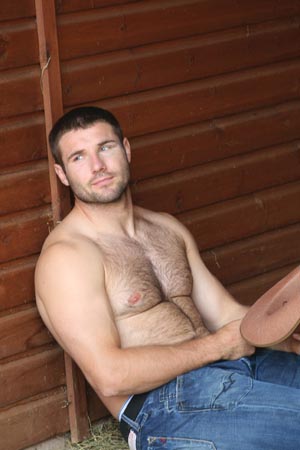
MW: What can people expect at your May 24 event with the Washington Renegades and the D.C. Bëar Crüe?
COHEN: We’ll talk about what we’re doing, have the auction.
The biggest thing about it is that I’m approachable. You can see me. You can talk to me. I’m not there just flying the flag and unreachable. That’s the important thing about our foundation, that we hold events and you see me personally. I’ll go around and speak to people, which is important. I’m a real person. I’m not putting myself out there like you can look but you can’t even talk to me. That’s not what it’s about. It’s about meeting everyone and having a chat, having a picture, signing some bit. I’m not going to hide myself away.
MW: Does that accessibility ever lead to fans getting too aggressive?
COHEN: No, not at all. Will it get that way? I haven’t got a clue. I’ll get around and see everyone and talk to everyone. The more accessible you are, the more people say, ”Oh, you go first. I’ll have a chat later.” That’s what we’ve found.
MW: What do people want to talk about at these events? Rugby? Are they thanking you?
COHEN: ”Why are you doing it?” That’s it. I’ll explain it a thousand times a night, but it’s important they know that I’m sincere. I’m not into fame. If fame comes along with it, fair enough. As long as it makes our cause more powerful, fantastic. I don’t mind putting my head above the parapet and saying, ”Here I am, guys. This is what I support.” I’m not here to try to really gain anything from it. I’m here because I genuinely want to make a difference.
MW: Do people get very emotional when they’re speaking with you?
COHEN: Sometimes they’re actually speechless, which I can’t believe. Sometimes they’re a bit starstruck, which I find very crazy. [Laughs.] They don’t know what to say. They go all shy. Those conversations can be a little bit hard. [Laughs.]
MW: Metro Weekly readers will definitely want to know – since you’ve done this in the past – if you plan to auction off a signed jockstrap in D.C.
COHEN: I don’t think that will be happening in D.C. [Laughs.] That was good. That was something that was lighthearted and, most importantly, raised money for charity. They can get a StandUp T-shirt off my back, the one I’m wearing. We’ll have other things there to support the foundation.
MW: Is there anybody in particular you’re hoping to meet while you’re touring here?
COHEN: No. I’m here to meet people where the problems are, to hear about the problems they face. If anyone wants to come along and make a difference – maybe a straight athlete, or an actor or whatever – then fine. More than welcome.
MW: Is there anything you’d like people to know about you, something that may not get much attention?
COHEN: That I’m honest. I’ve got a shit memory, but I’m honest, sincere and definitely want to make a difference. I hope that comes across, that I’m an honest guy, and a family guy. The last thing I want anyone to think is that I’m here for anything but to make a difference. I’m here to stop people killing themselves.
Ben Cohen brings his Acceptance Tour to Town Danceboutique, 2009 8th St. NW, on Tuesday, May 24, 8 p.m. to 12 a.m. All proceeds from $3 cover go to the Ben Cohen StandUp Foundation. For more information, visit acceptance.ben-cohen.com
Support Metro Weekly’s Journalism
These are challenging times for news organizations. And yet it’s crucial we stay active and provide vital resources and information to both our local readers and the world. So won’t you please take a moment and consider supporting Metro Weekly with a membership? For as little as $5 a month, you can help ensure Metro Weekly magazine and MetroWeekly.com remain free, viable resources as we provide the best, most diverse, culturally-resonant LGBTQ coverage in both the D.C. region and around the world. Memberships come with exclusive perks and discounts, your own personal digital delivery of each week’s magazine (and an archive), access to our Member's Lounge when it launches this fall, and exclusive members-only items like Metro Weekly Membership Mugs and Tote Bags! Check out all our membership levels here and please join us today!








